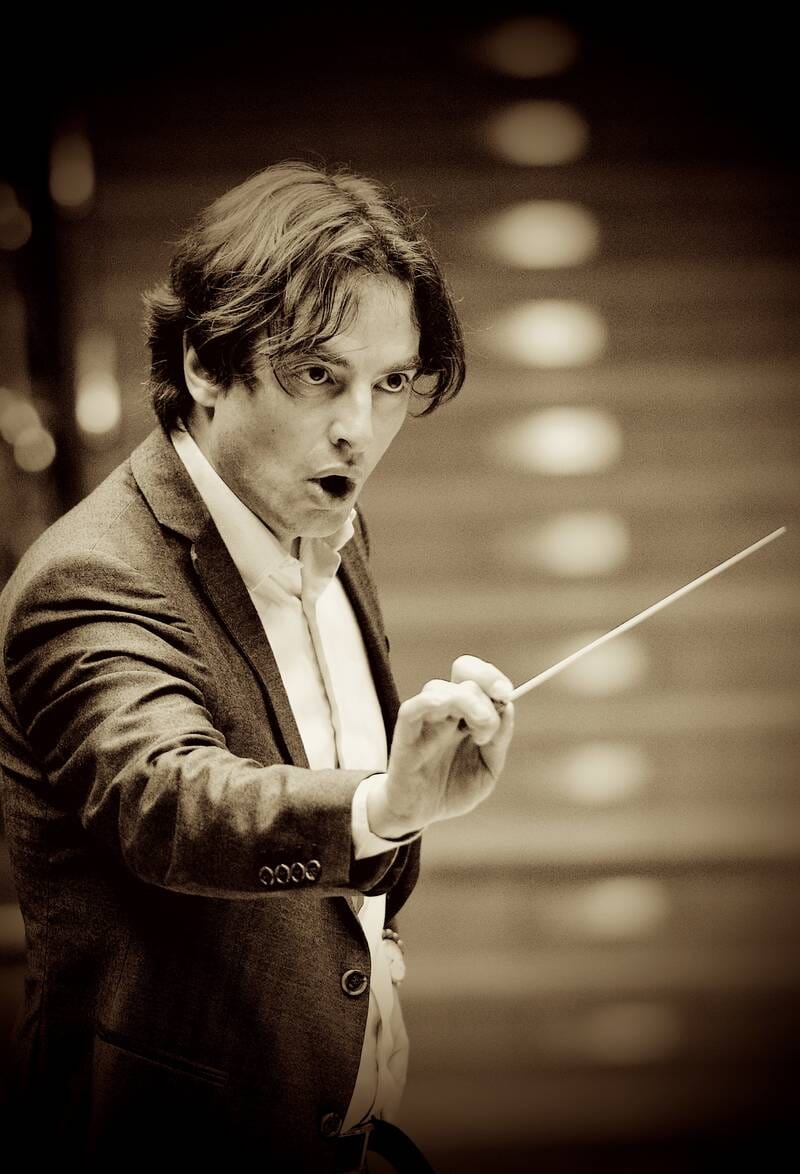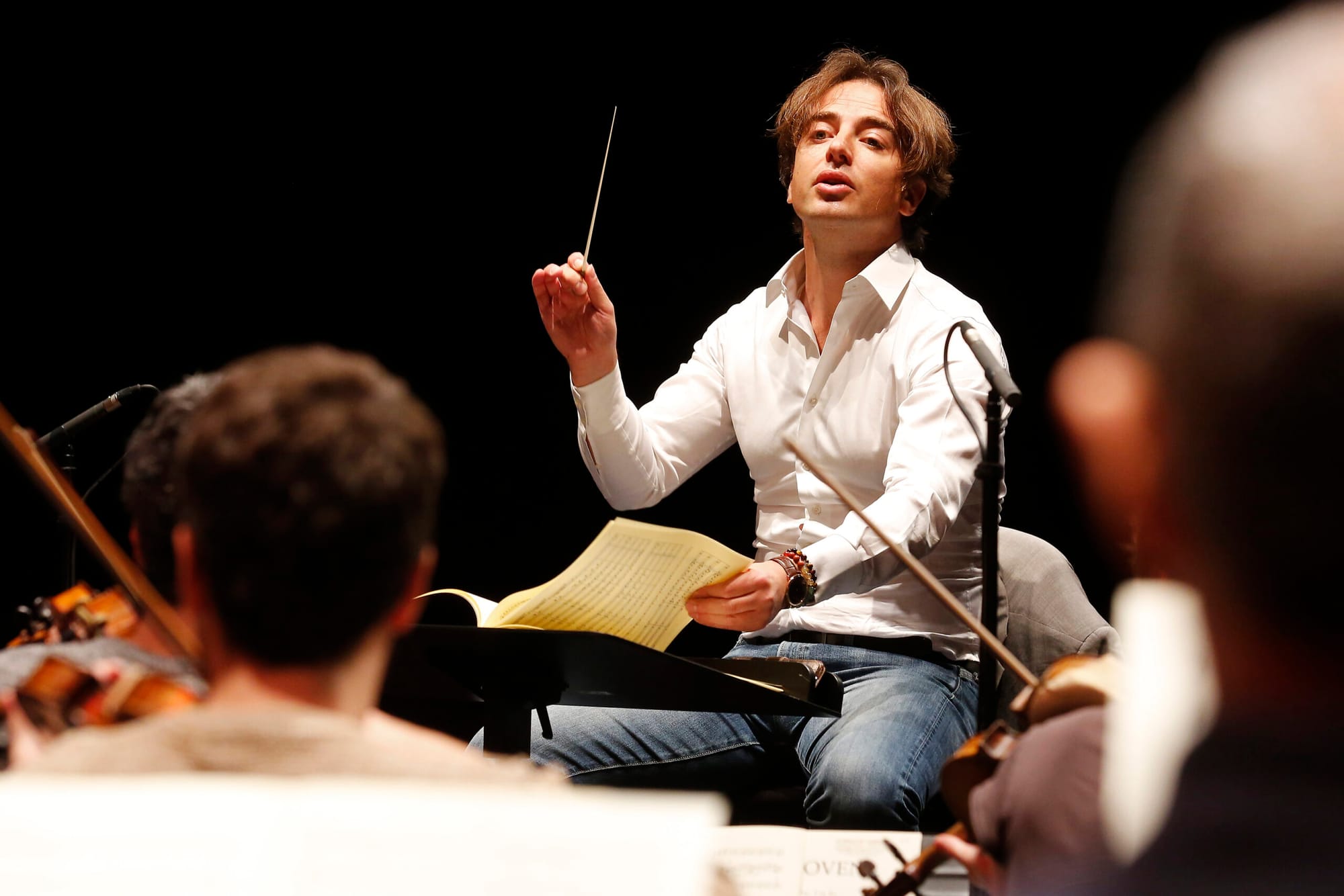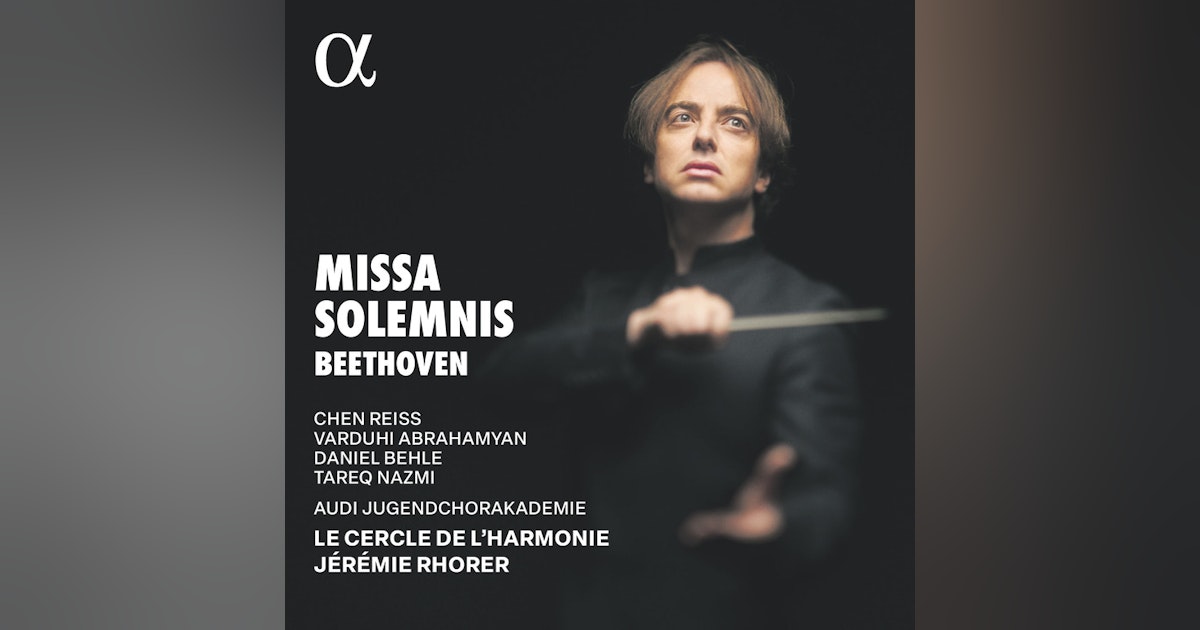Beethoven's Missa solemnis on Alpha
From the heart, may it go to the heart

This is an extraordinary reading of an extraordinary piece. Jérémie Rhorer came to the Missa solemnis afresh, eschewing recorded versions. He performs it at A = 430 Hz (which apart from its historical prescience, helps the sopranos of the Audi Jugendchorakademie!) and with the remarkable Le Cercle d l'Harmonie. It is fair to say tempos are brisk, but not for the sake of it: this is often edge of the seat drama. In a Gramophone interview, Rhorer has suggested there is something of a Passion about this piece, and perhaps one can intuit that from the reverential gait of the opening choral Kyrie, which also serves to establish the absolutely superb recording. The performance was taken down in the Philharmonie, Paris on April 23, 2024. The engineers (of Radio Classique) are truly superb, balancing soloists well (forward but not intrusive) as well as allowing every orchestral detail to come through. The Philharmonie can seem like a huge barn if you sit in the wrong place, but not here. And Rhorer has really studied this score in intimate detail.
I notice the same performers gave the work at the Aix Easter Festival last year, and you can see a snippet in this video (from the Agnus Dei: for that performance, one soloist different: Tariq Nazmi in the Paris performance replaced Johannes Weisser in Aix):
It is the “Gloria” that really shows how special the choir, the Audi Jugendakademie, is: every texture beautifully realised, power and tenderness in equal measure. The clearest aspect that comes through is Rhorer's choice of empo. Each one seems perfectly to maintain momentum and yet deliver maximum detail. He does something that is very rare, too, in that the tempo does not have to change between the massive climax at “Pater omnipotens” and the gentler, more lyrical “Domine Fili, unigenite” (Guilini live managed it, but only by taking the main body of the “Gloria” cripplingly slow). And how the quartet of soloists blend thereafter, prior to the dramatic entrance of trumpets and drums at “Qui sedes ad dexterem patris”. Nice to hear a tenor in Daniel Behle who doesn't over-stress his part. And for all the talk of Missa solemnis as Passion and therefore the inevitable Bach, surely it is Handel, not Bach, that comes to mind in the choral counterpoint towards the end of the “Gloria”?
That approach to the end of the “Gloria” is headlong and furious, the final choral “Gloria” impressive. But consider Bernstein, who in his later DG account seemed to see this movement more as questioning faith than affirming it, with the final gesture thrown out as a dare ...

Rhorer's “Credo” works better than most. There are no pools of longeur here, just a rigorous approach and again the sense of the perfect tempo. And Behle has all of the strength (without encroaching into Heldentenor territory) for the annunciatory “Et homo factus est”. A diminuendo into nothing prior to the “Et resurrect” is unforgettable, the “Et resurrect” itself a ball of Beethovenian fire, the choir rising to Beethoven's demands magnificently. To take it at this speed and maintain clarity is an achievement indeed. And then “Et vitam Venturi” makes on the mode of a processional (sopranos admirable in the face of Beethoven's demands, and even more so when the counterpoint really launches).
Rhorer pinpoints the modernity in Beethoven's score, too, heard clearly in the “Sanctus” a movement yet blessed with the most wonderful violin solo from Jonathan Stone (previously of the Doric Quartet). When it comes to the violin and soloists' “Benedictus,” Reiss' soprano shines like a light, and yet the balance is perfect. It is later, also, when he solo violin has to contend with vocal forces as well as orchestra.
The opening of the “Agnus Dei” seems to come from some dark Romantic forest; Tareq Nazmi's blanched bass is almost harrowing. The “Dona nobis pacem” is not quite like coming into the sunlight, more like dipping into a warm bath. Other elements of the final stretch are more operatic than Passion-based, a remarkable reading. If you thought you know Missa solemnis, maybe you need to hear this ...

The soloists certainly have their work cut out. Good to see Chen Reiss taking on the soprano part: she excelled on both the Odradek release Voices, and I praised the “exquisite poetry” of her finale to Mahler's Fourth Symphony (Czech Philharmonic/Bychkov on Pentatone).
Two live performances I have heard of this piece really stand out: Guilini with the Philharmonia (referenced above, some time ago!) and Sir Colin Davis at the Proms in 2011. Both left a sense of awe; Rohrer does the same, although via very different means.
“From the heart, may it go to the heart,” wrote Beethoven on the autograph (in German, obviously). This performance on the ever-interesting Alpha label certainly does that. Recommended.
The disc may be purchased from Amazon here on CD (there is also a more expensive vinyl option). Streaming below.


